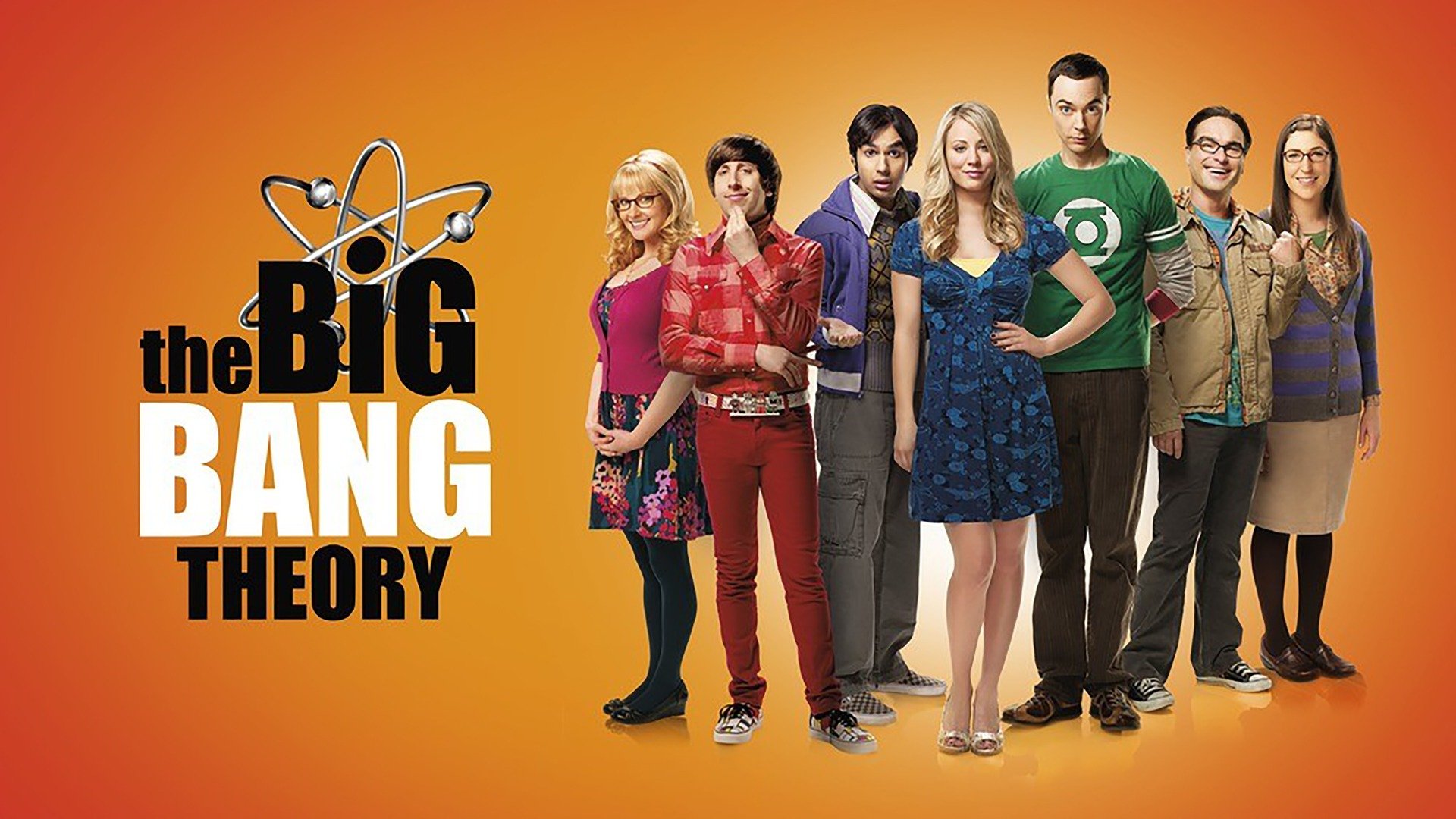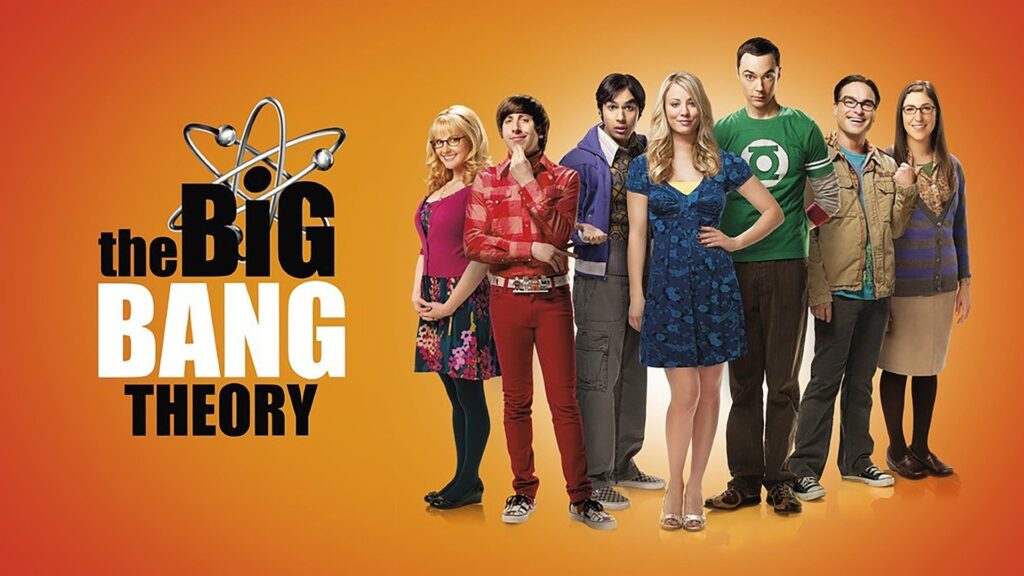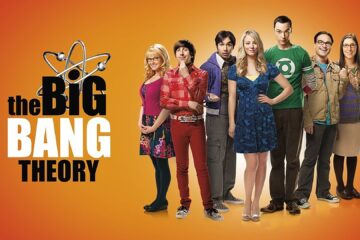The Big Bang Theory Season 1 Episode 6 | The Imitation Perturbation

The Big Bang Theory Season 1 Episode 6, when Halloween arrives, Wolowitz decides to imitate Sheldon’s appearance. In response, Sheldon plans to get back at Leonard and Penny during their Halloween party. Meanwhile, Leonard is taken aback by Penny’s lack of recollection regarding their initial kiss.
Links for The Big Bang Theory
All The Big Bang Theory Season 1 Vocabulary Lists

Vocabulary List for The Big Bang Theory Season 1 Episode 6 Part 1
Sure, here are some potentially unknown vocabulary words from the script along with their explanations:
- Paintball: A game in which players use air guns to shoot pellets filled with paint at each other.
- Humiliating: Causing feelings of shame, embarrassment, or degradation.
- Preadolescent: Relating to the period of childhood just before adolescence (around ages 9 to 12).
- Annihilated: Completely destroyed or defeated.
- Incompetence: Lack of skill, ability, or proficiency.
- Chain of command: The hierarchical structure in an organization where instructions and decisions flow from higher to lower ranks.
- Yarmulke: A skullcap worn by Jewish males, typically during religious ceremonies.
- Fragged: Slang term meaning killed or eliminated, often used in the context of video games and combat situations.
- Inquiry: A formal investigation or examination of a situation or event.
- Boy-girl party: A social gathering that includes both males and females.
- Halloween: A holiday celebrated on October 31st, often associated with costumes, trick-or-treating, and spooky themes.
- Genre-specific: Pertaining to a specific category or style, often used in creative works like literature, movies, or costumes.
- D&D: Abbreviation for Dungeons & Dragons, a popular fantasy tabletop role-playing game.
- Manga: Japanese comics or graphic novels.
- Norse gods: Deities from Norse mythology, originating in the Germanic paganism of the Scandinavian peoples.
- Solo: Alone or individually, without assistance or companionship.
- Racism: Prejudice, discrimination, or antagonism directed against someone of a different race based on the belief in inherent superiority.
- Doppler effect: A change in frequency or wavelength of a wave in relation to an observer moving relative to the source of the wave.
- Context: The circumstances or setting in which something occurs, providing a better understanding of its meaning.
- Embarrass: Cause to feel self-conscious, ashamed, or awkward.
- Quiver: A container for holding arrows.
- Peer group: A social group consisting of individuals of similar age, status, or interests.
- Anthropologist: A scientist who studies human societies, cultures, and their development.
- Bed-wetting: Involuntary urination during sleep, often associated with young children.
- Condoms: Protective sheaths worn over the penis during sexual activity to prevent pregnancy and sexually transmitted infections (STIs).
- Quiver: A container for holding arrows.
- Parades: Processions or organized marches often for celebration or display.
- Swell up: To become larger or increase in size, often due to fluid retention or inflammation.
- Tights: Close-fitting, elastic garments worn on the legs, often made of nylon or similar material.
- Telepathically: Communicating thoughts or ideas directly from one mind to another without using spoken or written language.
- Sloppy: Careless, untidy, or lacking precision.
- Costuming: The act of designing or wearing costumes, especially in a theatrical or themed context.
Please note that some of these words might be familiar to English learners at a B1 level or above, but they have been included as potentially unfamiliar based on the context of the script.

Vocabulary List for The Big Bang Theory Season 1 Episode 6 Part 2
Sure, here are the potentially unknown vocabulary words from the script along with their explanations:
- Subconsciously: In a way that is done without conscious awareness or thought.
- Effeminate: Having qualities or characteristics traditionally associated with women, often used to describe men with stereotypically feminine traits.
- Idiopathic: Referring to a disease or condition that arises spontaneously or for which the cause is unknown.
- Arrhythmia: A condition in which the heart beats with an irregular or abnormal rhythm.
- Metaphor: A figure of speech in which a word or phrase is used to describe something to which it is not literally applicable, suggesting a resemblance.
- Alpha males: In animal groups, the dominant or highest-ranking males; in this context, referring to individuals who assert dominance or leadership.
- Paradigm shift: A significant change in the way something is perceived or understood.
- Intellectual: Relating to the ability to think and understand ideas and information.
- Animalistic: Behaving in a way characteristic of animals; instinctive and primal.
- Puffery: Exaggerated or extravagant claims, often used in a boastful or self-promotional manner.
- Hippocampus: A region of the brain involved in memory and learning.
- Misfiring neurons: Neurons that are not functioning correctly, often leading to disruptions in brain activity.
- Conversion: The process of changing from one form, function, or state to another.
- Leprechaun: A type of mythical creature in Irish folklore, often depicted as a small, mischievous elf-like being.
- Frontation: The act or process of confronting or facing a challenge or situation.
Please note that the explanations provided are concise and simplified for clarity.

Vocabulary List for The Big Bang Theory Season 1 Episode 6 Part 3
Potentially unknown vocabulary (CEFR B1 and above) and their explanations:
- Afford: To have enough money or resources to buy or do something.
- Cultural convention: A customary or traditional practice that is widely accepted within a particular culture or society.
- Apologetic: Feeling or showing regret or remorse for having done something wrong.
- Idiot: A derogatory term used to describe someone who is foolish or unintelligent.
- Drunk: Under the influence of alcohol, intoxicated.
- Genius: An exceptionally intelligent or creative person.
- Shire: The term used to refer to the homeland of hobbits in J.R.R. Tolkien’s “The Lord of the Rings” series.
- Summoned: To call or request someone to appear or come to a specific place.
- Norse god: Refers to the gods in Norse mythology, which includes Thor, Odin, and other deities from ancient Norse traditions.
- Clarification: The act of making something clearer or easier to understand by providing additional information or explanation.
- Passionate: Showing strong enthusiasm, intensity, or emotion towards something.

0 Comments